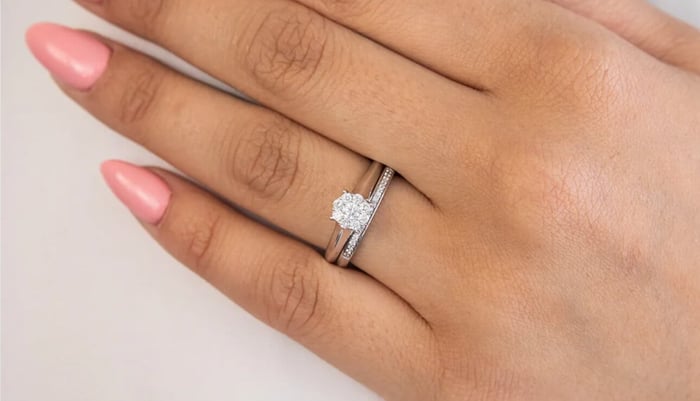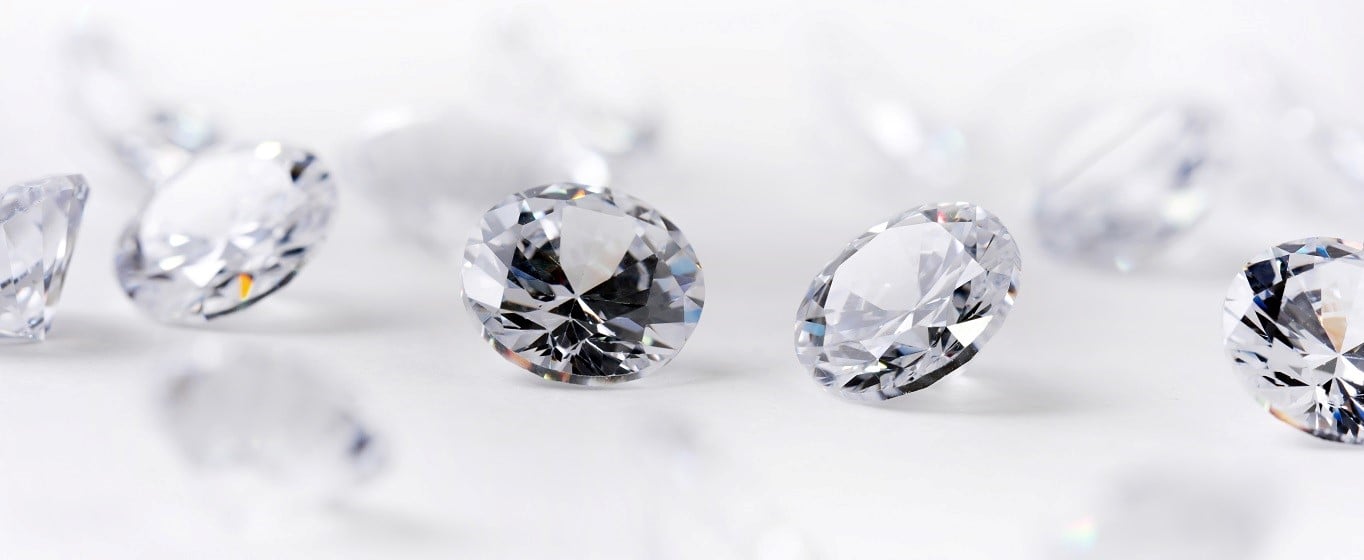
When it comes to purchasing a fine ring, whether for an engagement, wedding, or simply as a statement piece, the material choice is often a key decision. Two of the most popular options are platinum or gold ring. Both metals have been treasured for centuries, and each carries its own unique qualities. So, how do you choose between platinum and gold for your ring? Let’s explore the differences, advantages, and considerations of each metal.
Table of Contents
1. Composition and Appearance
Platinum: Platinum is a naturally white metal that has a dense, durable, and sleek appearance. It’s hypoallergenic, meaning it is ideal for individuals with sensitive skin. Platinum rings typically retain their white color over time and don’t require re-plating. Its natural luster is subtle and elegant, making it a popular choice for those who prefer a more understated, timeless look.
Gold: Gold comes in a variety of colors: yellow, white, and rose gold. Yellow gold, which is the traditional choice, boasts a warm, classic hue, while white gold has a more modern, silvery sheen. Rose gold has gained popularity in recent years for its romantic, pinkish tint. Gold is also a soft metal, which means it is usually alloyed with other metals to enhance its strength. The purity of gold is often measured in karats (K), with 24K being the purest form. However, 18K and 14K gold are more commonly used in rings because they offer a good balance of durability and appearance.
2. Durability and Strength
Platinum: Platinum is one of the densest and heaviest metals, making it incredibly durable and resistant to wear and tear. It doesn’t tarnish, corrode, or oxidize, and it holds up well to daily use. Unlike gold, platinum doesn’t lose material over time—though it can develop a patina (a soft, matte finish), many people appreciate this aged look. If your ring gets scratched, the metal is displaced rather than lost, so it can often be polished back to its original state.
Gold: Gold is a softer metal than platinum, especially in its purest 24K form. This softness can make it more prone to scratches, dents, and bending, especially if it’s worn daily. As a result, gold rings are often alloyed with stronger metals such as copper, nickel, or silver to improve their durability. 18K and 14K gold, which contain less pure gold, are more resilient to damage compared to 24K gold. However, even with alloying, gold is generally less resistant to wear than platinum.
3. Cost Considerations
Platinum: Platinum is a rarer metal than gold, and this scarcity is reflected in its price. It is typically more expensive than gold, both in terms of raw material and labor costs for crafting jewelry. The high density of platinum also means that a platinum ring will weigh more than a gold ring of the same size, contributing to its higher price tag. While platinum’s higher cost may initially deter some buyers, many find the durability and lasting value to be well worth the investment.
Gold: Gold, particularly 14K and 18K, tends to be more affordable than platinum. The cost of gold can fluctuate based on market conditions, but it generally remains less expensive than platinum, especially for rings of similar weight and size. For those on a budget or looking for a more economical option, gold rings may be the preferable choice. However, the price difference can be quite noticeable when considering larger or more intricate designs.
4. Maintenance and Care
Platinum: Platinum’s durability means that it requires relatively little maintenance. The patina that develops over time can be appealing to many, but if you prefer a shinier look, lab created diamonds or platinums can be polished to restore its high gloss. Due to its resistance to oxidation and tarnishing, platinum rings won’t require constant cleaning or re-plating.
Gold: Gold rings, especially those made of white gold, often require more upkeep. White gold rings are typically plated with rhodium to give them a bright, shiny finish, and this plating can wear off over time. As a result, white gold rings may need to be re-plated periodically to maintain their appearance. Yellow and rose gold rings, on the other hand, tend to require less maintenance in terms of plating but can still benefit from occasional polishing to remove scratches and maintain their shine.
5. Allergies and Skin Sensitivity
Platinum: Since platinum is hypoallergenic and doesn’t contain nickel, it is an excellent choice for individuals with sensitive skin or metal allergies. It’s less likely to cause irritation or allergic reactions, which makes it a great option for those who wear rings on a daily basis.
Gold: Some people may experience allergic reactions to certain alloys in gold, particularly nickel, which is often used in white gold. If you have a known allergy to nickel or other metals, it’s advisable to choose higher-purity gold or opt for platinum, which is hypoallergenic.
6. Symbolism and Sentimental Value
Both platinum and gold have long histories of being used in wedding and engagement rings, carrying symbolic meanings of love, commitment, and preciousness. Platinum’s rarity and resilience may symbolize the lasting nature of a relationship, while gold, with its rich cultural heritage, can evoke timeless beauty and tradition. The choice between the two may come down to personal values and the significance you attach to the material.
Which One Should You Choose?
Ultimately, the decision between platinum and gold depends on your personal preferences, budget, and lifestyle. Here are a few key points to consider:
- Choose platinum if you value durability, hypoallergenic properties, and a modern, sleek look. It’s ideal for those who want a ring that will stand the test of time and retain its appearance with minimal maintenance.
- Choose gold if you prefer a warmer, classic color or a more budget-friendly option. Gold rings can be just as beautiful and meaningful as platinum, and with proper care, they can last for many years.
No matter your choice, both platinum and gold are remarkable metals that create stunning rings capable of becoming treasured heirlooms for generations to come.







